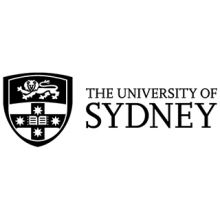Australia’s mercurial international education industry is attracting predictions of both boom and doom, with “record enrolments” tipped amid a horror 2022.
A near-record 21,900 visas for higher education study were allocated in July, the latest month for which figures are available. Monthly grants have averaged more than 14,000 since borders reopened in December, about 6,000 more than the previous year’s figures.
July also attracted a near-record 19,500 higher education visa applications. Lodgements for the 2021-22 financial year were about 40 per cent higher than 2020-21 and 1 per cent higher than 2019-20.
Edith Cowan University has marked its “largest ever international student intake” and is “well into the post-Covid rebound and recovery”, according to its manager of international operations. The Australian Financial Review (AFR) tipped a “blockbuster” 2023 for the sector following an “unexpectedly bullish” intake of students this year.
The newspaper said student recruitment firms were reporting unprecedented demand and English language testing had rebounded strongly in China.
Yet La Trobe University vice-chancellor John Dewar described 2022 as “the worst year for all of us”. “We’ve got fewer international students in Australia than we’ve had since the start of the pandemic,” he told the National Press Club in July.
Addressing the same venue in August, University of Sydney vice-chancellor Mark Scott downplayed any repeat of the A$250 million (£146 million) surge in international education earnings that helped fuel last year’s astonishing surplus. “Sydney University will not be recording a billion-dollar surplus next year,” he insisted. “We’ll never see that moment again.”
Data sources suggest the recovery has a way to go. Higher education visa applications last financial year were about 17 per cent shy of pre-pandemic levels, with visa grants 29 per cent below their 2018-19 peak.
Education export earnings tumbled to a nine-year low of A$20.2 billion, just over half of the 2018-19 figure, although the decline in export revenue has slowed from about A$3 billion to A$300 million a quarter.
Education consultancy Studymove predicted that about 141,000 new overseas students would start Australian higher education courses this calendar year, compared with 108,000 in 2021. But commencements remain below 2017 levels and 20 per cent below the 2019 peak.
“Market conditions have changed radically,” said managing director Keri Ramirez. “We are kind of close to pre-pandemic levels – not quite there, but close.”
Navitas analyst Jon Chew said higher education visa applications from offshore were 7 per cent higher than before the pandemic, with grants just 5 per cent lower despite visa processing bottlenecks.
“We’re seeing some great green shoots,” he told the AFR Higher Education Summit. “Time will tell whether that translates into a…sustained recovery.”
University of Melbourne deputy vice-chancellor Michael Wesley said much depended on whether China maintained its recognition of remotely delivered foreign degrees. While this arrangement had helped bolster Australian enrolments, its maintenance could “introduce much greater price competition into the market”.
Studymove said growth in international student fees had stalled during the pandemic, with average annual rises of 5 per cent before Covid slumping to 1.5 per cent by 2022. Ten Australian universities had reduced their fees this year, with another 10 raising them by less than 1 per cent.
Mr Ramirez urged institutions to watch their competitors’ fees closely, “so you are complementing your marketing mix and really targeting the right audience”.
Register to continue
Why register?
- Registration is free and only takes a moment
- Once registered, you can read 3 articles a month
- Sign up for our newsletter
Subscribe
Or subscribe for unlimited access to:
- Unlimited access to news, views, insights & reviews
- Digital editions
- Digital access to THE’s university and college rankings analysis
Already registered or a current subscriber?












